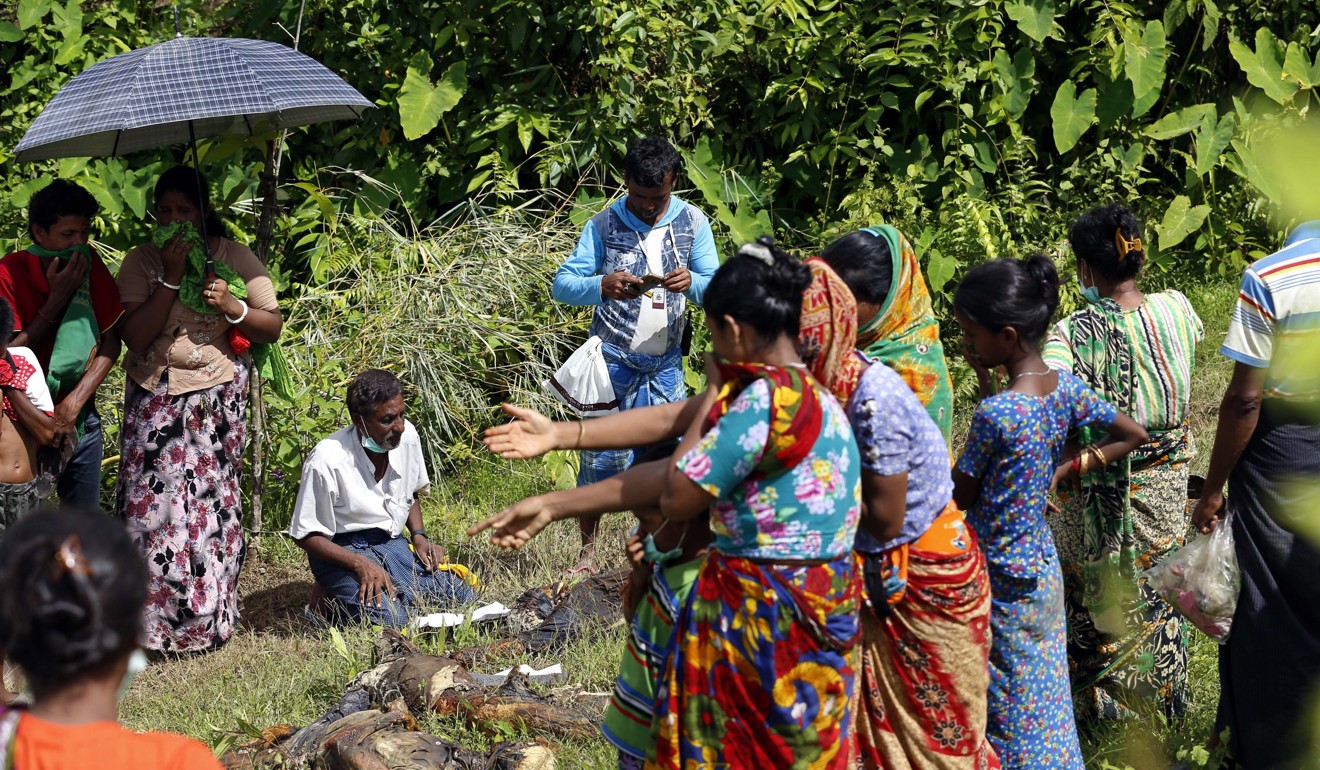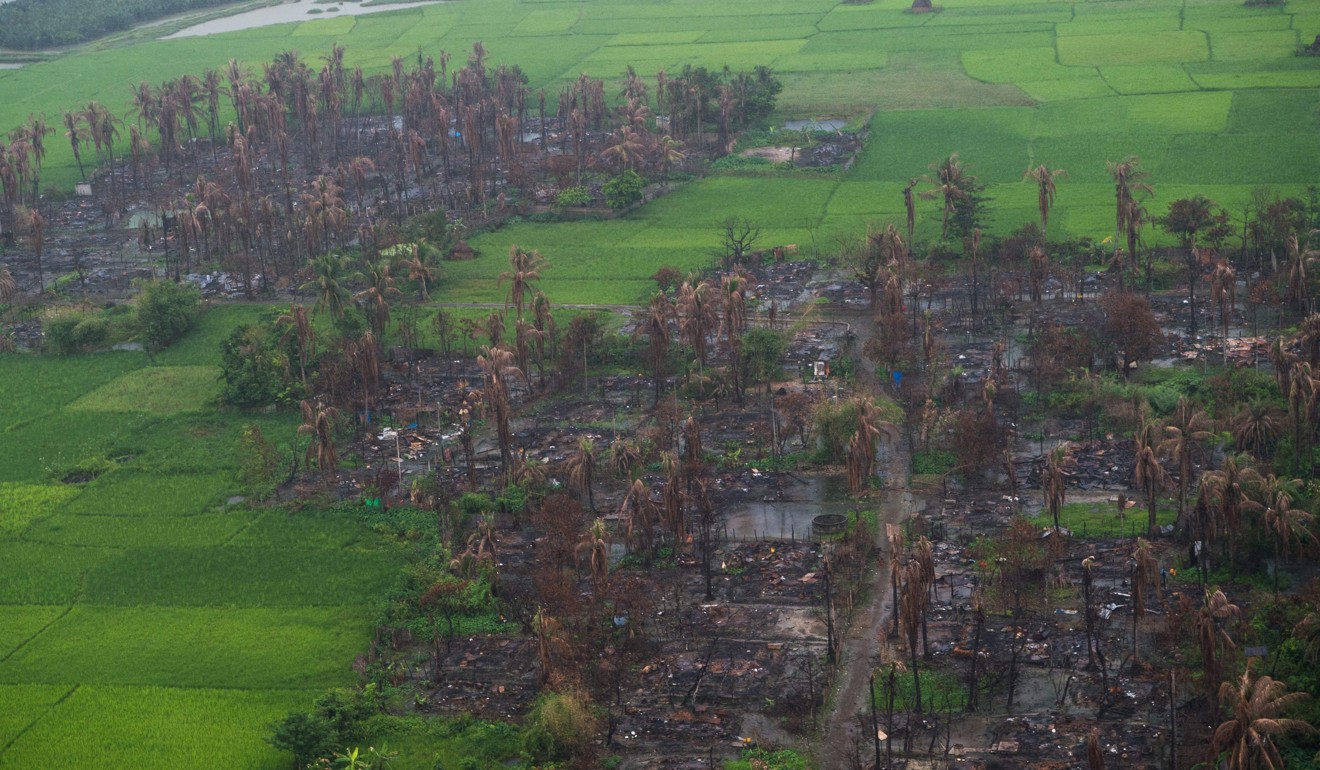
UN’s long-awaited visit to Myanmar’s Rakhine state postponed due to bad weather
International body has contingency plan to feed up to 700,000 refugees from the violence-wracked region, and warned that those who have already fled will not be returning home soon
A UN visit to Myanmar’s conflict-battered Rakhine state was postponed on Thursday, thwarting efforts to reach the epicentre of violence for the first time since the start of a massive exodus of minority Rohingya Muslims.
The UN, has urged Myanmar to allow humanitarian access to northern parts of Rakhine state since violence erupted in late August, forcing around 480,000 Rohingya Muslims to flee.
On Wednesday, the UN said it had been told its representatives could join a government-steered trip to the area on Thursday – but the visit did not take place.
All the UN agencies together have now set a plan for a new influx of 700,000 [refugees]
“The government-organised visit was postponed to next week because of weather conditions,” a spokesman from the Office of the UN Resident Coordinator in Myanmar said, without giving further details.
Access to the area by relief agencies and global media has been heavily controlled by Myanmar’s army and government. That has made it impossible to independently assess the humanitarian situation or allegations of widespread abuses.
The UN has drawn up a contingency plan to feed up to 700,000 Rohingya refugees from Myanmar, and warned that those who fled will not be returning home soon.
“All the UN agencies together have now set a plan for a new influx of 700,000. We can cover if the new influx reaches 700,000,” the World Food Programme’s deputy chief in Bangladesh, Dipayan Bhattacharyya, said on Wednesday.
UN refugee agency chief Filippo Grandi said for those who have fled to Bangladesh, “return will take time, if it happens, if the violence stops”.
Myanmar’s military, under fire for imposing a news blackout on the campaign around the city of Maungdaw in the country’s west, on Wednesday organised a press tour in the Hindu village of Ye Baw Kyaw.
Mass graves containing 45 Hindu villagers were discovered in the area earlier this week, and the military has accused Rohingya militants of carrying out the massacre.

The Arakan Rohingya Salvation Army (ARSA) “categorically” denied its members “perpetrated murder, sexual violence, or forcible recruitment” in the area.
The decomposing skeletal bodies were laid out in rows on a grassy field outside Ye Baw Kyaw as distraught relatives wailed, according to journalists at the scene.
Hindus who fled the area have said masked men stormed their community and hacked victims to death with machetes before dumping them into freshly-dug pits.
Myanmar’s army tried to control the narrative over the crisis, restricting press access to the conflict zone while it posts regular updates blaming Rohingya militants for the bloodshed.

Government and military reports have also sought to highlight the suffering of other ethnic groups, such as Rakhine Buddhists and Hindus, swept up in the communal unrest.
The latest violence has intensified long-running religious hatred and been complicated by a swirl of rival narratives from different ethnic groups.
Thursday’s visit for the UN representatives was scheduled on the same day that the UN Security Council meets on the situation in Myanmar.
On September 13, the council demanded “immediate steps” to end the Myanmar violence and expressed concern about “excessive force” being used by the military.
Watch: What’s driving Myanmar’s Rohingya crisis?
The council also called on the Myanmar government to abide by its commitment to facilitate humanitarian aid in Rakhine, but until now that request has not been met.
Secretary General Antonio Guterres will address the UN Security Council during its open door session. As a former UN high commissioner on refugees, Guterres knows Rakhine and the context of the current crisis intimately.
With accusations of “ethnic cleansing” being levelled at the UN General Assembly, Myanmar leader Aung San Suu Kyi said last week she was “ready” to organise the return of the Rohingyas.
The Rohingyas, the world’s largest stateless group, are treated as foreigners in Myanmar, whose population is 90 per cent Buddhist.

.png?itok=arIb17P0)